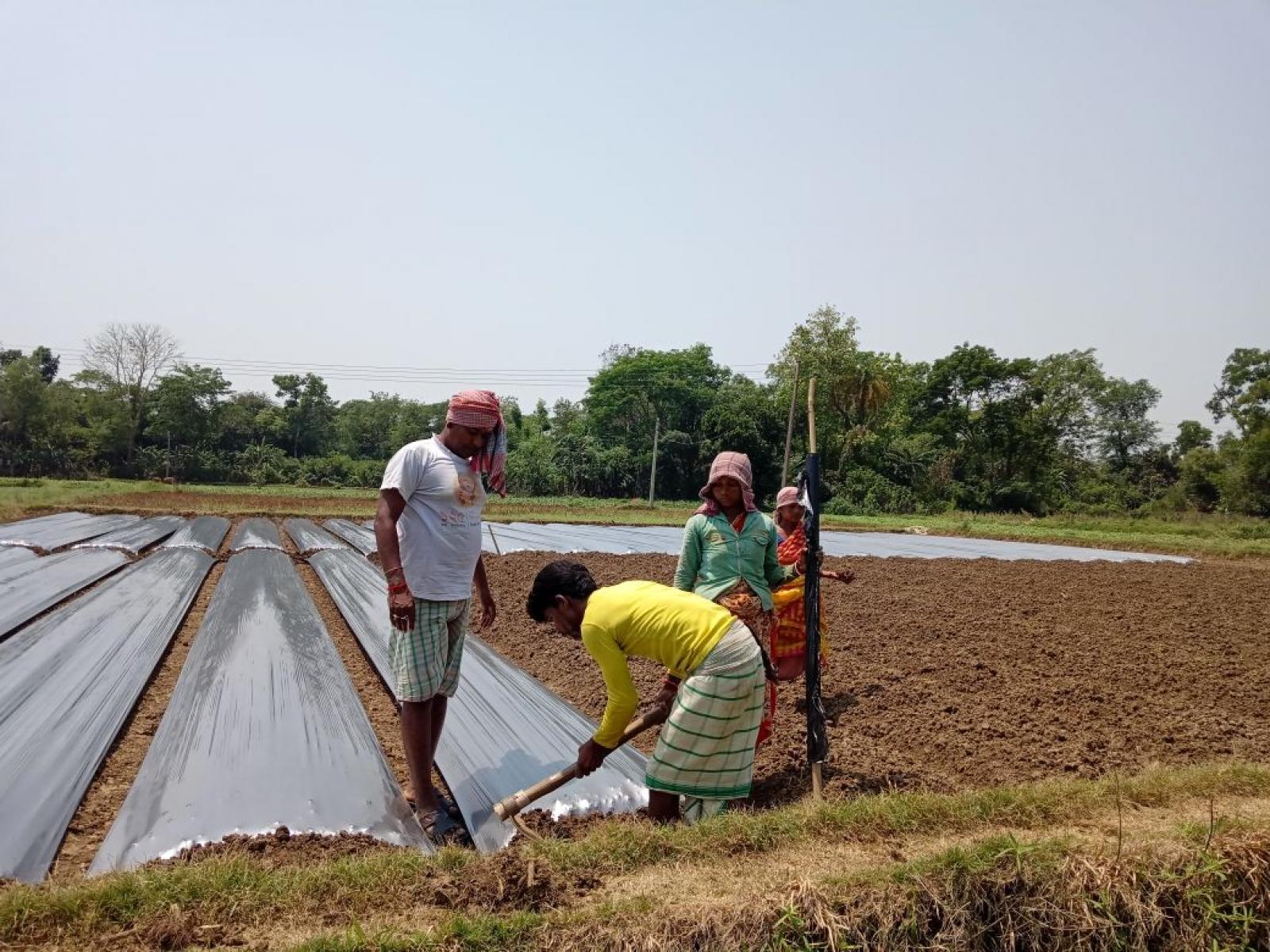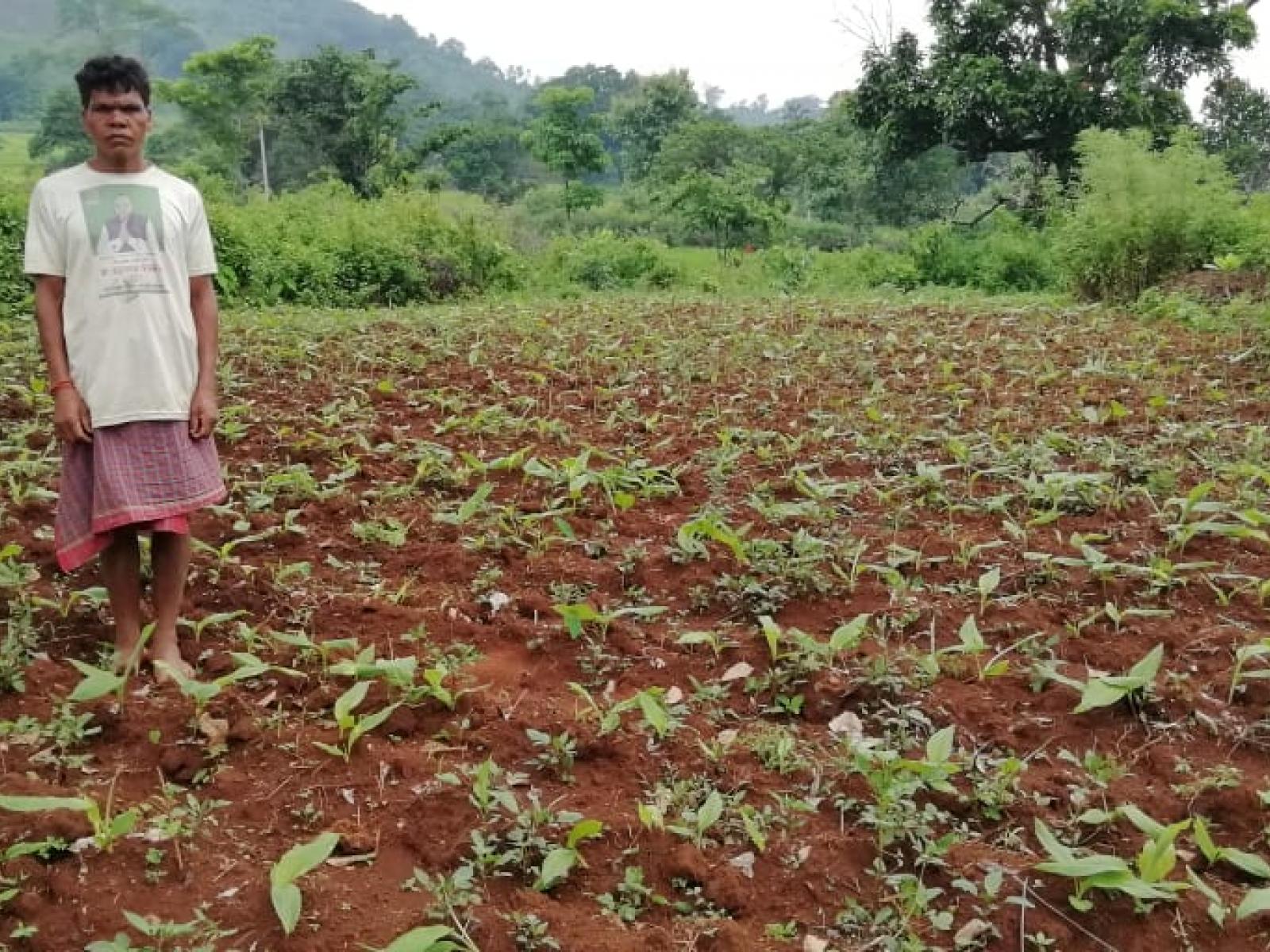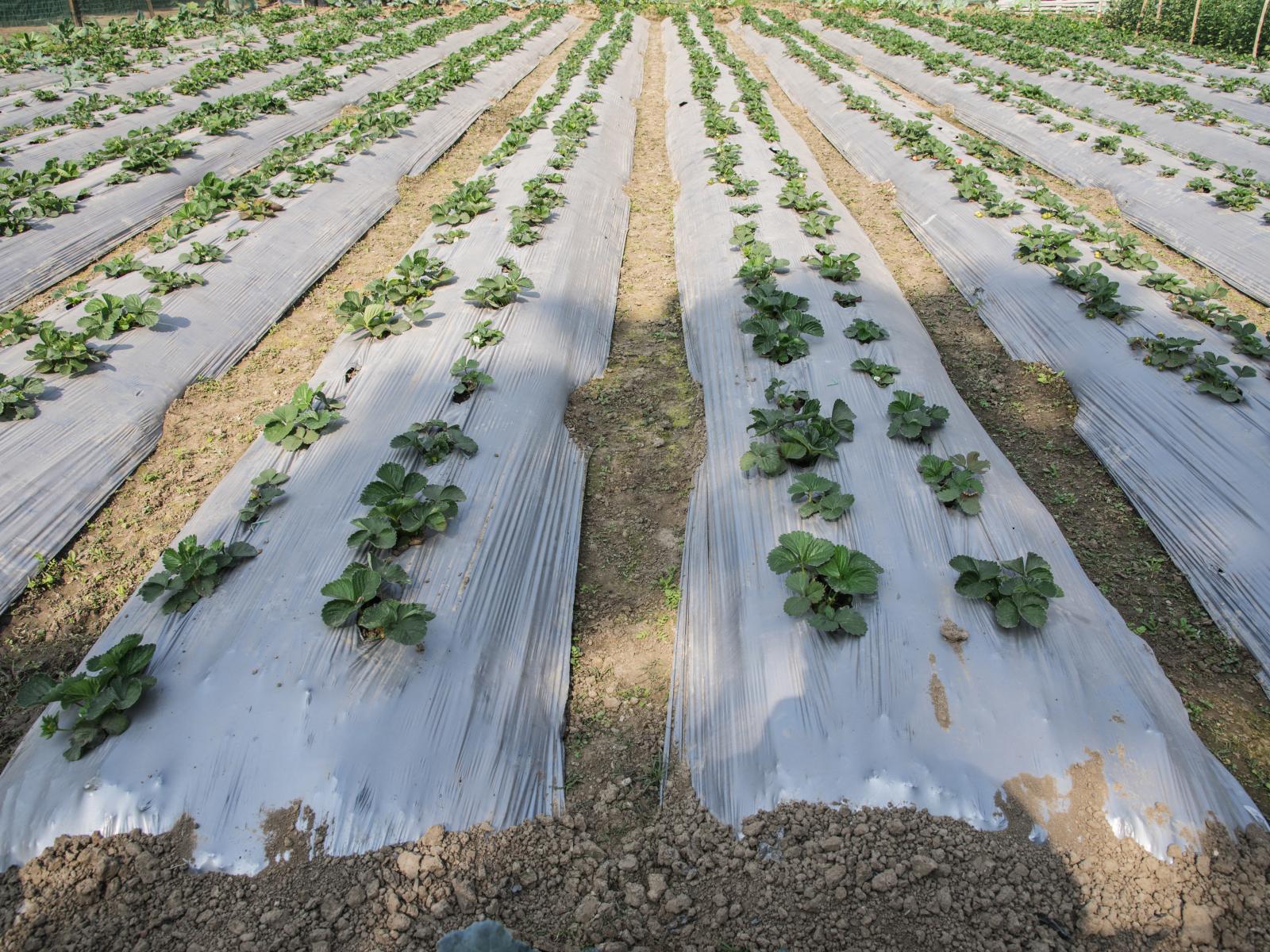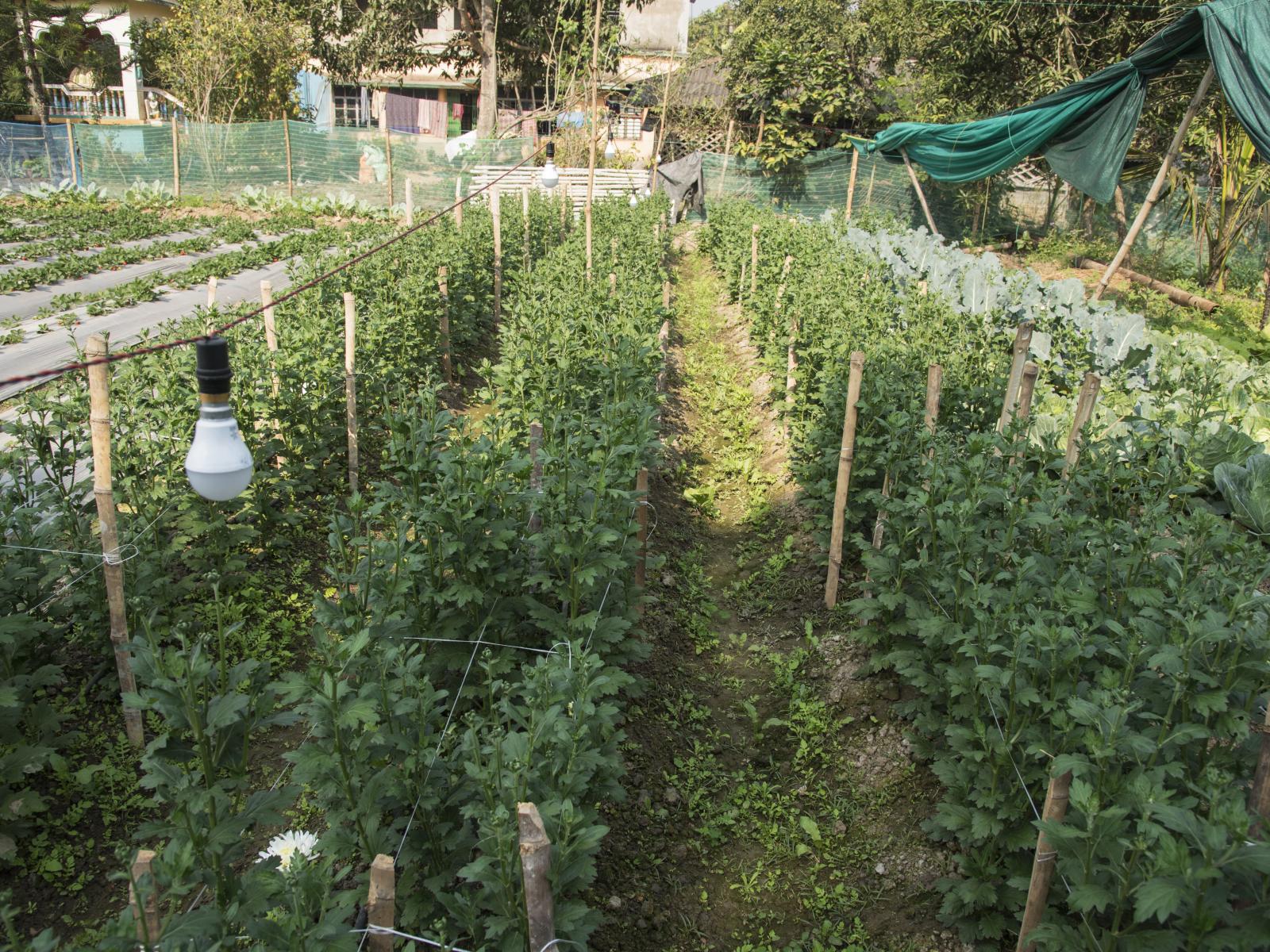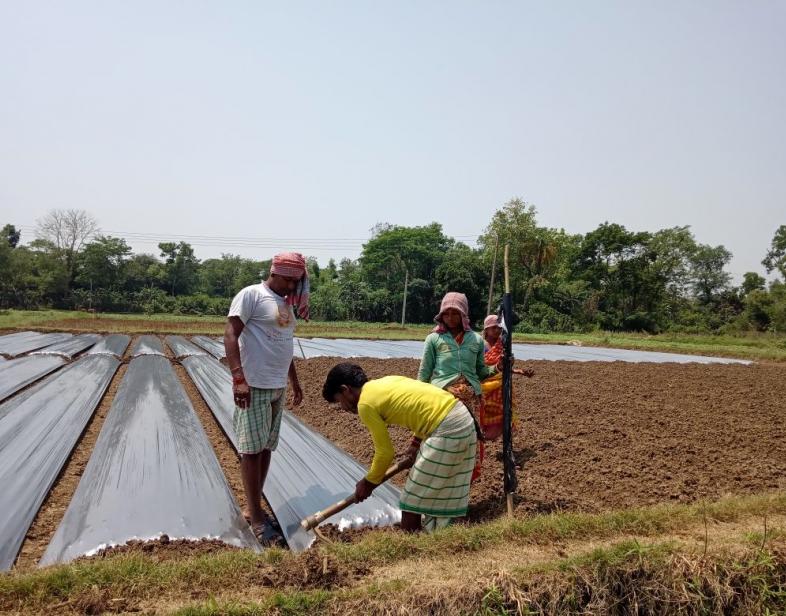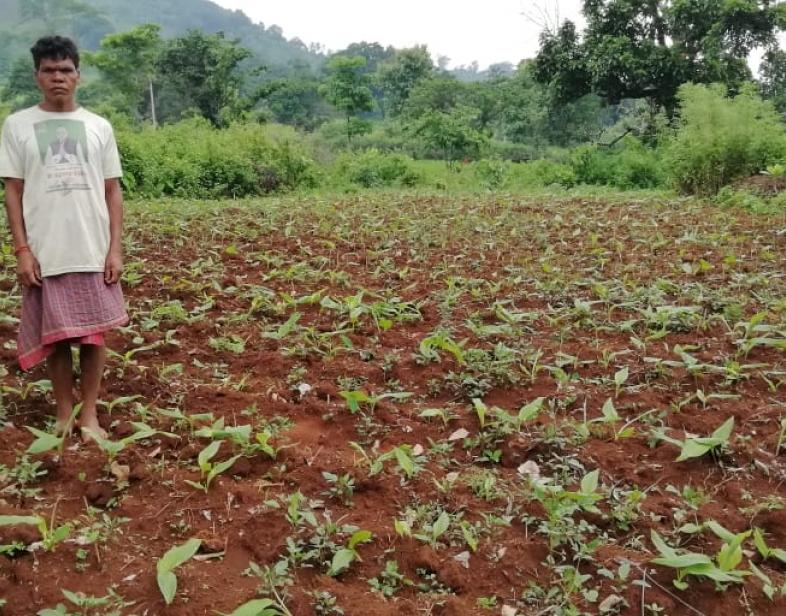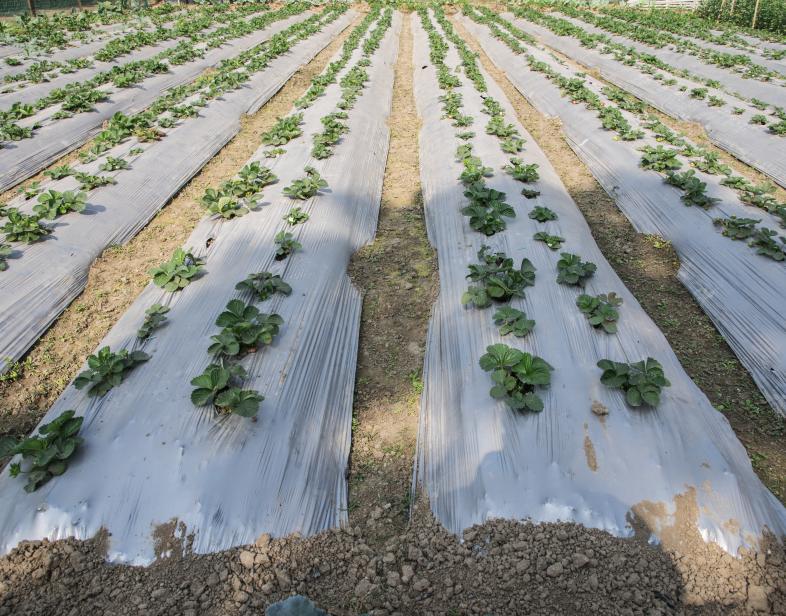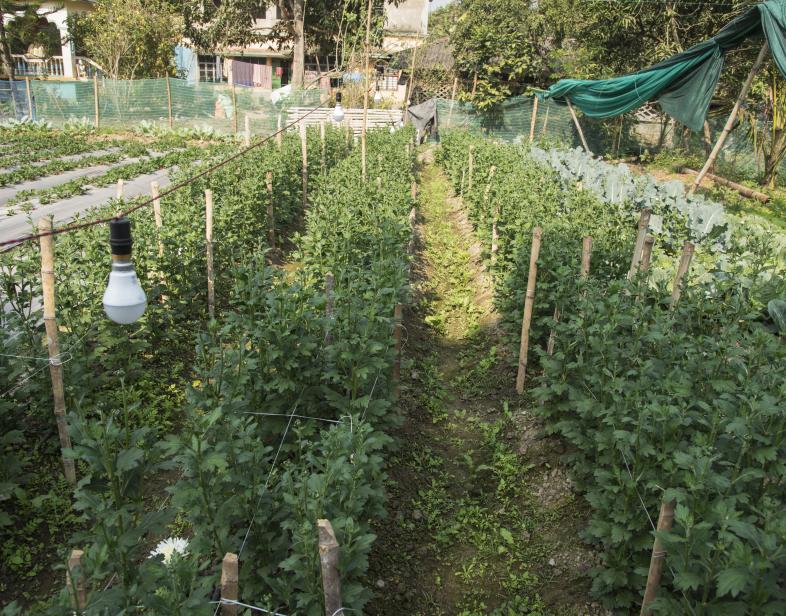An Overview Of Our Solution
SwitchON Foundation promotes conservation of water quality in smallholding farms through 100% elimination of synthetic chemical inputs (fertilizers and pesticides). This not only minimizes and reduces the contamination of groundwater, but also reduces the chances of marine pollution and the impacts of ocean acidification. Our program identifies a cluster of marginal farmers facing water quality issues in a particular location, mobilizes them and gives them training on organic farming. After continuous practise of organic agriculture, they have not only experienced improved groundwater and surface water purity, but also good soil health, local biodiversity and a two-fold rise in income.
- Population Impacted: 80000
- Continent: Asia
背景分析
A study published by IIT Kharagpur, reports that 20 million people in South Bengal are potentially exposed to high doses of pesticides, insecticides and other pollutants present in the groundwater and in river Hooghly. The level of pesticides in the water is 46 times higher than the permissible limits by WHO. Herbicides such as alachlor and atrazine and insecticides such as malathion are predominantly found in agricultural areas. The reason behind this is that farming in West Bengal relies heavily on chemical fertilizers and pesticides. Their excessive use has resulted in diminishing marginal utility leading to declining net incomes and growing debt for farmers.According to National Sample Survey Office (NSSO), the income of a farmer in West Bengal is lower by 1.1 percent against the national average of $300/year. Thus introducing organic agriculture was not only necessary for maintaining water quality, but also for maintaining soil health, human health and farmer's income.
描述您希望目标受众采用的技术解决方案。
We focus on organic agriculture as a means of reducing both water pollution and exploitation of natural resource. According to FAO, agriculture accounts for 70 percent of water abstractions worldwide and plays a major role in water pollution. Agricultural pollution of surface water, groundwater and marine waters relates to the contamination of drinking water, and harmful effects on ecosystems and costs for recreational activities, cultural values.We ensure that there is no use of chemical or fertilizer use which can harm the water reserve or the environment. We use natural and bio compost, vermicompost for fertigation and manuring of the crops. This resulted in both better yield and an environment-friendly solution to our farming system. Also, we promote the implementation of water efficient irrigation methods- drip and sprinkler irrigation so that there is no overexploitation.
描述你的行为干预。
We focus on farmers’ decisions to voluntarily adopt (more) environmentally sustainable practices. We primarily identified farmers who were not satisfied with the conventional methods of farming at the initial stages. We explained to them the benefits of organic farming and how it would be affecting the water quality, their income, livelihood and in general, their way of living. We provided demonstrations and cited examples of individuals and entrepreneurs doing successful organic farming to them. . Relative to the decision-making processes, farmers’ decisions to adopt more sustainable practices are primarily business ones, occur less frequently, often have long-term personal and economic consequences, may involve large investments and long-term commitment. So, it took a while to convince them. After a small group of farmers initiated the process, it was a free flow as more and more farmers wanted to join them. With time, as the farmers realized the benefits of organic agriculture, they included more enthusiastic people to join them.
使用的行为杠杆
如需要,请更详细地解释你是如何使用杠杆的。
Initially, implementation of organic agricultural techniques was not much desirable. To make them realize the impact of inorganic farming on groundwater, we gave sensitization sessions to them on how they can protect and preserve water by shifting to organic farming. We brought in influential farmers following the same practice so that they could be motivated and encouraged to follow the same. The farmers had to be convinced about the business side and how could they benefit from adopting such practices. We also brought in government officials who would consolidate their motivation and also share ideas and advice for better performance. We explained the benefits and nutritional values of organic products to them. We made them believe that our association with the farmers would be for long term. We trained them on end to end processes - from sowing of seeds to establishing market linkages. The future plan is to conduct scientific trainings, workshops and demonstration visits
描述项目的实施。
Initially, we had a small group of farmers who were not very happy with the traditional agricultural practices they were doing and were looking for a better solution. Our main motive was to implement sustainable agricultural practices so that the adverse effects of traditional agricultural practices like water pollution as major causes of concern. In the primary stages, there was reluctance and resistance from the farmers' side. They did not have any knowledge or proper training regarding organic agriculture. Most of all, they were not in an organized cluster. We had to provide them information and conduct awareness programs so that they could realise what they were getting into. Next, when they started doing the farming process, they could themselves realise the benefits and were hopeful to continue doing so. After the first initiation process, there were more farmers who wanted to join the cause and volunteered themselves. Today, we have an organized group of registered organic farmers working in a cluster. Through the years, we were able to increase number of farmers, increase land holding capacity and provide a better livelihood to the farmers. We were also able to secure funding for the same from government body and promote the cause in and outside various areas of the state.
描述项目的主导者。谁在主导项目实施?
The leadership of our solution is headed by a woman entrepreneur and some very enthusiastic, young and optimistic individuals. Ekta Jaju is the co-founder of SwitchON Foundation and Founder CEO at ONganic Foods. She has strong experience in the areas of Sustainable Energy and Agriculture, and consulted with several national and international organisations including UN Women and GIZ.The team consists of youths from diverse backgrounds which helps to bring a different perspective in the workplace. It is a unique and critical capability helping our organisation to adapt to diverse customers, markets, ideas and talent. Diversity helps to enhance the business performance and avoid adverse implications like conflicts, miscommunication, higher levels of employee turnover, and other unintentional effects in the organization. Diversity also brings a variety of new perspectives and experiences to the leadership team.
分享参与解决方案开发和实施的关键合作伙伴。
Over the years, in our journey towards achieving sustainable solutions, we came to be associated with multiple stakeholders and partners. Some of the major projects include: Promotion Formation of Farmers Producer Organization in Nadia district of West Bengal, Pilot project for installation of irrigation pump powered by Solar energy by NABARD, Adopting Organic Villages in Nadia District of West Bengal- by Lush Foundation, Smart Village in Bankura district of West Bengal – GE (CSR), Solar Model Village by CAF India, Access to Rural Energy in India: Entrepreneurship of Solar Lights in Odisha and West by The Climate Group, Exploring the market Opportunities for Promotion of solar powered irrigation technologies in West Bengal- GIZ by GIZ-IGEN, Promotion and Formation of Farmers Producer Organization- Small Farmers Agribusiness by Small Farmers Agri- Business Consortium (SFAC)
视频文件
谁采用了期望的行为,采取的程度如何? 解释一下你如何测量行为变化的。
Our main target base was farmers following conventional agricultural practices and their behaviour towards adoption of organic farming. It was important to explain to the farmers how their socio-economic status would improve and how they were contributing towards preservation of natural resource. In the later stages, they themselves went on to explain to other farmers how it was important to conserve water and practice farming techniques which would cause no harm to our natural resources. Even though we started with a very small group of farmers, the cluster grew with time in terms of number of farmers and productivity. In the initial stages, it was just a small disorganized group but today it is a full fledged registered organic farmer group. The journey from expansion of cluster as more farmers showed interest in organic farming and eventually involved themselves is remarkable.
项目是如何影响水污染的?请详细说明并包括相关的测量方法。
Our solution of adopting organic agriculture mainly aimed at implementing sustainable agricultural practices to prevent water pollution and over exploitation of groundwater. The total elimination of inorganic chemical inputs, improves the quality of groundwater aquifers, as pesticide and fertilizer leaching are common causes of groundwater contamination. The high concentration of ammonium nitrate in fertilisers, and hazardous chemical pollutants from pesticides which run-off into rivers and oceans can severely impact aquatic life. The use of natural fertilizers, have resulted in the reduction of contamination and degradation of rivers and oceans. The organic farmers have reported improved health quality due to consumption of clean water and organic food. The use of various mulching techniques promotes a sufficient mix of air and water in the soil. This method has resulted in reduced water input requirement, improved water efficiency in agriculture, and also made crops drought resilient
您的解决方案如何促进平等(包括种族、性别、民族、社会阶层/收入,或其他)?
We have reached to small and marginal farmers who were suffering losses from traditional agricultural practices. Our solution helped to create an organized, registered cluster of organic farmers. Compared to traditional farming, the organic farmers were able to reap higher benefits. We were able to create a better market linkage for their produce which helped them to create their own identity, gain profits which in turn created a better income base for the farmers. All this helped the farmers to lead a better life in their society. Due to no use of chemical fertilizers, there was also lesser use for purchase of inputs. The social status of the farmers was improved by enabling rural poor to get benefit from agricultural development, giving respect to indigenous knowledge and practices along with modern technologies, promoting gender equality in labour, full participation of vibrant rural communities to enhance their confidence and mental health.
社会和/或社区是如何受益的?
Gradually the farmer group expanded into cluster and were provided market linkage to their produce. It also became feasible for us to avail grants for the cause and other government schemes and programs. This gave them social identity as a cluster of registered organic farmers and helped to improve their social status within the community. Organic agriculture has increased the availability of healthy organic food to the farmers, which has resulted in improvement in health condition.
环境是如何受益的?
Due to application of local/organic manure, the fertility of soil is maintained hence lesser pollution of groundwater and soil. Organically managed soils have a higher potential to counteract soil degradation as they are more resilient to water stress and climate change.
可持续发展如何得到促进?
The project reaches out to small, marginal and women farmers, which resulted in reduced input costs, increased productivity, and diversified livelihoods, which meets SDG 1 (eradicate poverty) and SDG 5 (achieve gender equality). This meets the target of SDG 2 (end hunger). . Lastly, our project promotes economic use of water and improves the groundwater quality by eliminating the use of inorganic chemicals, which meets SDG 6 (Availability of Clean Water).
视频文件
可持续性:描述你的解决方案的经济可持续性。
Our motive is to create a sustainable solution which would be beneficial for the primary producers- farmers and also target conservation of water. Sustainable agriculture, organic agriculture requires very less amount of inputs hence the cost of purchase of buying them is reduced compared to traditional agriculture. Due to this, the quality of yield is also good with a higher market price. These days and in the times ahead, the demand for organic products is rising. Hence, it is profitable for farmers to be able to do organic farming. It has also been seen that farmers were able to earn better profits on their produce compared to the products derived from inorganic farming.
投入产出:实施这些活动的成本是多少?与你上面的结果相比,你的结果如何 这投资吗?
An average of 10000 USD is required to implement organic farming in the land of 100 farmers. We have seen doubling of inome among farmers, access to healthy food, better health and higher satisfaction.
如何能将这个解决方案成功推广在其他地方?
Our solution can be replicated by organizing by setting up similar clusters by undertaking the following - mobilization camps for farmers, organizing workshops, demonstration visits and providing market linkage.
SwitchON's organic agriculture initiative has impact 5000 farmers across 4 districts of West Bengal, in Assam and Chattisgarh. We have introduced 18 different crops in an area of 2000 acres of land. To replicate this model,SwitchON requires 100000 USD, involvement of farmers and dedicated employees who believe in sustainable agriculture.
